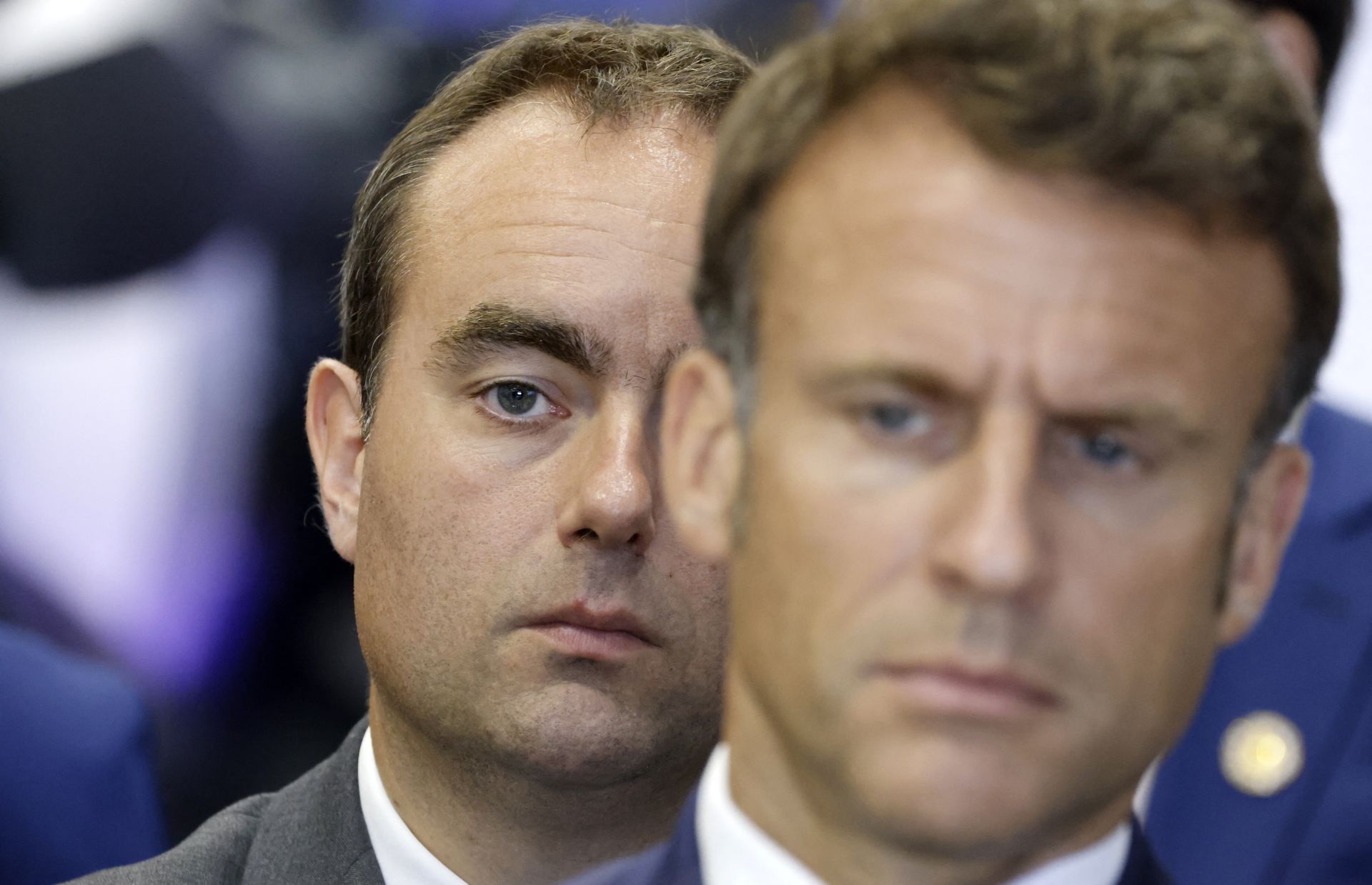- Home
- Middle East
- France's Macron Under Pressure to Produce Working Government

French Minister of the Armed Forces Sébastien Lecornu (left), alongside President Emmanuel Macron, visits the International Paris Air Show in Le Bourget on June 19, 2023. ©Ludovic Marin / POOL / AFP
The clock ticked down Wednesday for France's President Emmanuel Macron to find an exit from his worst domestic crisis, after his first prime minister and one-time ally urged him to resign.
Macron, who has been in power since 2017, has failed to lift the country out of political deadlock after snap elections last year ended in a hung parliament and increased seats for the far right.
Prime Minister Sebastien Lecornu, the third premier since those polls, on Monday threw in the towel just hours after broad rejection of his new cabinet.
But Macron convinced him to stay on until Wednesday evening to try to form a coalition government able to pass a much-needed austerity budget through parliament, with public debt at an all-time high.
Lercornu was expected to make a public statement on the state of discussions on Wednesday morning, before receiving representatives of the Socialist party.
Macron has said he would "assume his responsibilities" if this failed, appearing to mean early parliamentary elections.
The other options would be for him to name the eighth prime minister of his presidency or even resign.
Former prime minister Edouard Philippe, Macron's premier from 2017 to 2020, on Tuesday said presidential polls should be held early once a budget is passed, in comments Le Parisien daily described as a "political bomb".
The next presidential elections, where the far right under Marine Le Pen scents its best-ever chance of winning power, are due in 2027, with Macron barred from running and Philippe already declared as a candidate.
But Macron has always said he would remain until the end of his second term.
The French president's domestic isolation contrasts with his visibility on the international stage, where last month he recognized Palestinian statehood and is seeking to end Russia's invasion of Ukraine.
With mounting exasperation even within Macron's own camp, all options are on the table.
Former prime minister Elizabeth Borne, now outgoing education minister, late Tuesday said she would not be opposed to a suspension of a contested 2023 pensions reform to help exit the crisis.
The measure to raise the age of retirement from 62 to 64, which she passed through parliament without a vote by using a controversial constitutional power, sparked months of angry protests.
Macron's popularity has plummeted since the summer of 2024.
An opinion poll by Odoxa of more than 1,000 French people published Monday found that 57 percent believe the president was "entirely responsible" for Lecornu stepping down, and 70 percent were in favor of the president's resignation.
With AFP
Read more



Comments